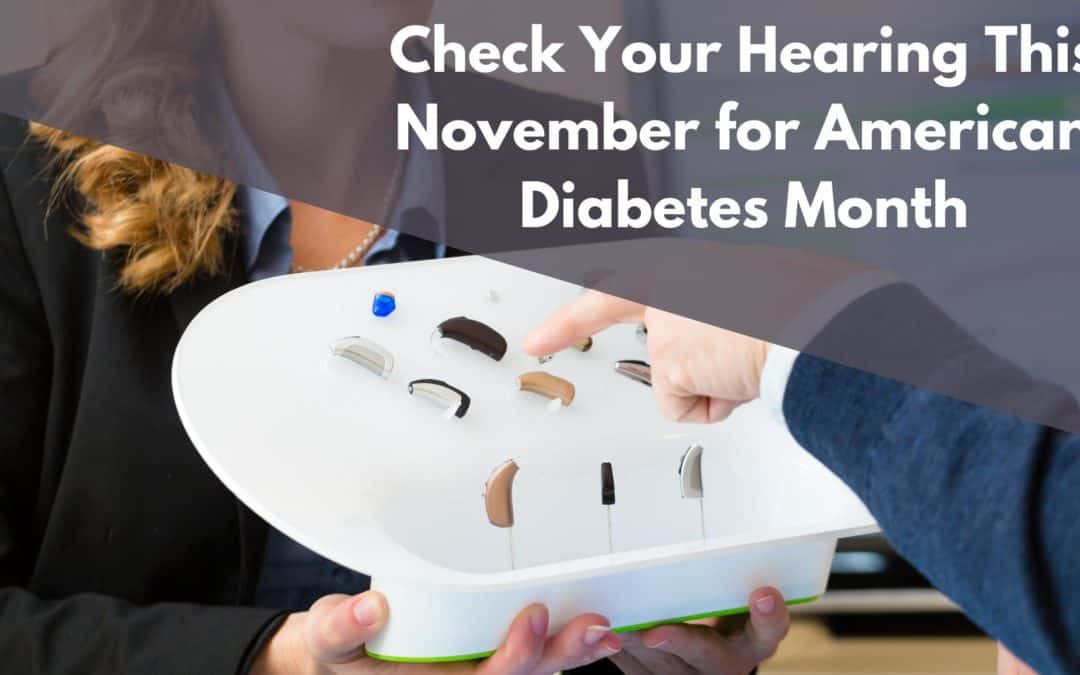Diabetes is a disease in which your blood glucose, blood sugar levels, and levels are too high. It affects over 30 million individuals in the United States. Approximately 90% of persons with this disease have type 2, which means their bodies don’t create or use insulin properly. However, regardless of your diabetes type, you should keep a close eye on your hearing.
According to research, those with diabetes are more than twice as likely as those without the disease to experience hearing loss. This American Diabetes Month, let’s focus on the link between hearing loss and diabetes.
What is diabetes?
Diabetes impairs the body’s capacity to create and regulate insulin, allowing glucose to accumulate in the bloodstream rather than supplying hungry cells. According to the Diabetes Research Institute Foundation, the number of patients diagnosed with this disease has increased by more than 50% in the last ten years.
There are three forms of diabetes:
- Type 1 diabetes affects people who cannot produce enough insulin to transport glucose into cells due to an autoimmune condition in which the body destroys the beta cells that produce the hormone.
- Type 2 diabetes patients can manufacture insulin independently; however, the amount of insulin produced may not be adequate to transfer glucose into the cells.
- Gestational diabetes develops in certain pregnant women, making the body’s cells increasingly resistant to insulin. Once the baby is born, gestational diabetes usually goes away.
All three kinds of diabetes have an increase in blood sugar levels, which must be managed. Diabetic retinopathy, amputations, kidney and heart failure, and stroke are all common complications of diabetes. This condition often leads to frequent urination, increased thirst and appetite, tiredness, rapid weight loss, hazy eyesight, slow infection healing, and difficulty concentrating.
What is the link between diabetes and hearing loss?
Diabetes and hearing loss are two of the most common health problems in the United States. There are various scientific theories about the link between diabetes and hearing loss, but further research is needed.
One theory is that hearing loss in this population is linked to the damage that high blood sugar levels can do to the body’s nerves. Diabetic neuropathy is a condition that usually affects the feet and legs, and it can cause discomfort and numbness, and the intensity of the symptoms varies from person to person. According to researchers who accept this notion, there is some damage to the hearing nerve as well – hearing loss could be caused by injury to the auditory nerves.
Another explanation revolves around the impact of the auditory system’s diminished blood flow. The premise behind this notion is that excessive blood sugar levels can harm the blood vessels that nourish the inner ear, causing hearing sensitivity to deteriorate. This notion is comparable to how high blood sugar levels might impair vision and kidney function. If a person has the disease for a long time and isn’t effectively controlled, the extensive network of tiny blood veins in their ears may be damaged.
As previously stated, hearing loss is twice as likely in people with diabetes as it is in people who do not have the disease. Adults with prediabetes were also shown to have a 30% higher likelihood of hearing loss than those with normal blood sugar levels.
Now is the time to take control of your hearing
Hearing loss symptoms are typically difficult to detect since they develop gradually. Family members and associates may notice hearing loss before the person who is suffering from it.
If you have diabetes, you should receive a baseline measurement of your hearing as soon as possible, whether or not you think you have hearing loss. Hearing examinations should be done at least once a year in the future. Hearing, like eyesight, can be stable for a long time before changing in a short period. If you have your hearing checked regularly, your medical team will be able to provide therapy as quickly as possible if and when your hearing begins to deteriorate.
It’s even more critical to have your hearing evaluated if you’re experiencing signs of hearing loss. The sooner we treat your hearing loss, the less it will affect your health outlook.

